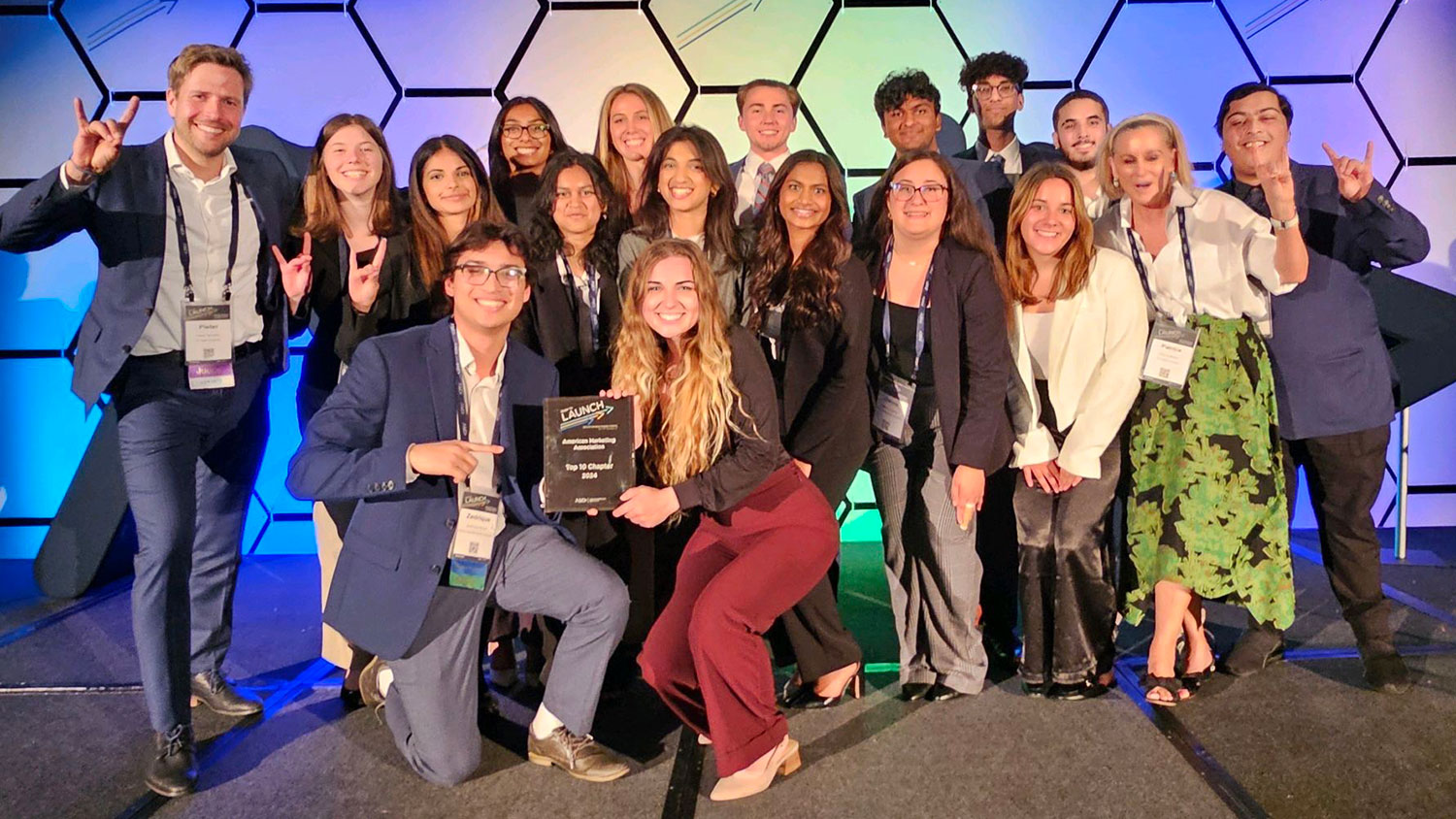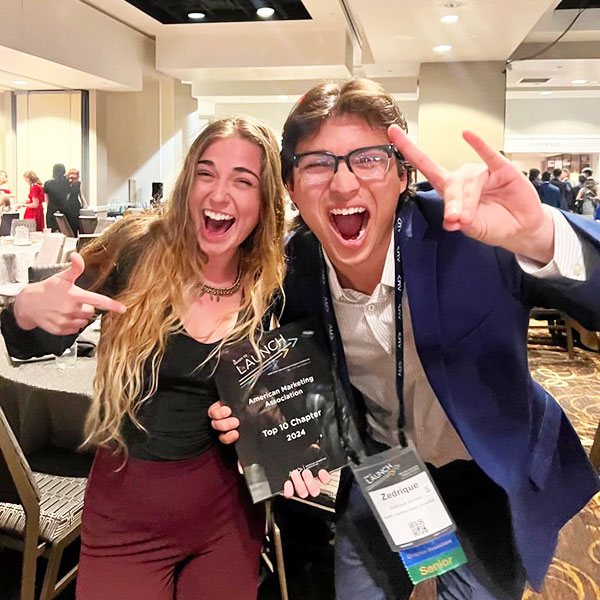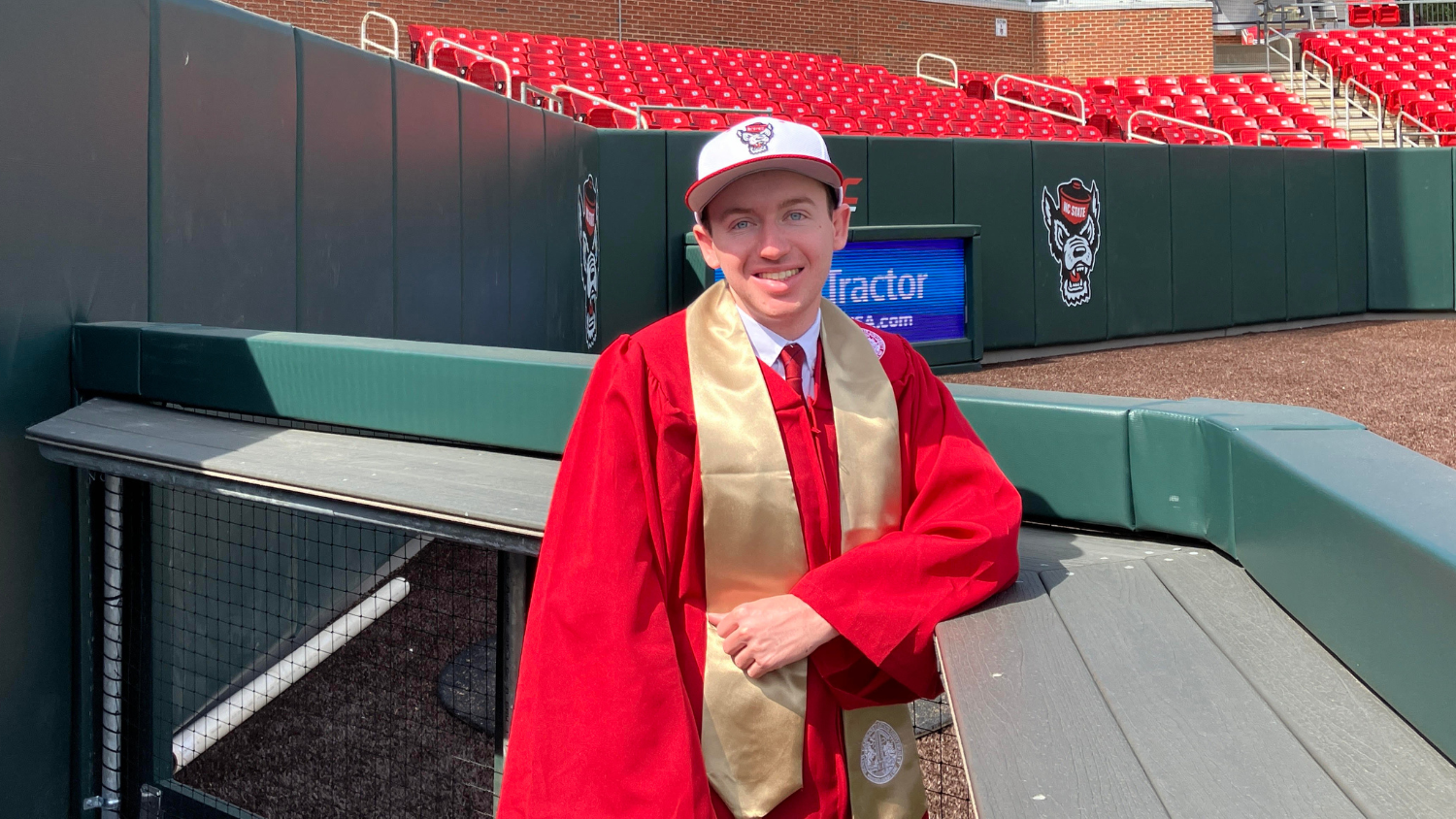NC State AMA Chapter Ranks No. 7 of 350 Collegiate Chapters Nationwide
NC State’s chapter in the last year has built on the club’s solid foundation with innovative ideas, an increasingly professional approach by its executive board, and a focus on internal community spirit in running the organization.

What’s almost as great as being No. 1? For the NC State American Marketing Association (AMA) chapter, it’s No. 7.
The student club achieved the new 2023 ranking at the annual American Marketing Association International Collegiate Conference in New Orleans recently. The seventh-place spot marks a progressive 10-year climb for the club in ratings of the approximately 350 AMA collegiate chapters in the U.S., Canada and Puerto Rico.
At the conference, students in the 130-member NC State club — which placed lower in the top 15 last year — were stunned about the result.
“We didn’t even think the top 10 was possible, but there we were at No. 7. We had so much Wolfpack pride,” says Jada Wyatt, a senior who held the new club position of executive vice president of strategy this past year. Zedrique Ahmed was president.
“It feels like we’ve taken a step in a much larger direction,” says Wyatt, a Poole business administration student who graduated this month. “I know it’s going to continue. We have momentum.”
That seems to be an understatement.
NC State’s chapter in the last year has built on the club’s solid foundation with innovative ideas, an increasingly professional approach by its executive board, and a focus on internal community spirit in running the organization.
Each chapter submits an annual report that details the previous year’s goals and accomplishments. The report influences international rankings, which are based in part on membership size, partnerships with community organizations and chapter achievements.
Among other initiatives, the NC State report highlights the restructuring of its executive board and governance, and its key strategic areas of engagement, collaboration and inclusion.
The club’s in-house marketing agency, CMS, which helps off-campus clients address real business issues, also makes the chapter stand out. The club’s own annual regional conference, held at NC State, is notable, too, and unusual among student AMA organizations.
Those measures have led to an improved reputation for a club that wasn’t even ranked until about 10 years ago.
“It shows how well they’re working together as a team and meeting their goals. Their overall goal is continuous improvement,” says Patrice Nealon, one of three Poole College faculty co-advisers (with Tom Byrnes and Pieter Verhallen) for the chapter. “Every year new initiatives are executed, resulting in growth and positive change.”

To spark growth and positive change, NC State’s chapter has met ambitious targets on several fronts as it provides opportunities for members to build leadership, organizing and teamwork skills.
With strong internal communication and an excellent digital presence, “The student organization mimics a well-run business,” Nealon says.
And businesses are noticing.
“It’s gratifying to see the number of employers who come directly to our AMA looking for students” to hire as interns and post-graduate employees, Nealon says.
Local business representatives also speak at NC State’s chapter events, and the club has corporate sponsors. A partnership with AMA Triangle, the regional professional AMA division, provides outstanding networking opportunities for students.
Wyatt’s experiences with the AMA and throughout her time at Poole have helped her build the business strengths she’ll need for success.
“Finding what it is that I bring to the table in business took so much exploration, but now I feel I can differentiate myself,” she says.
In the short term, Wyatt will work as a communications intern at Lenovo at Research Triangle Park. She also has goals of pursuing Poole’s new Business Sustainability Certificate and NC State’s Miller Fellowship, which supports graduates with a venture startup plan.
Like Wyatt, most of the AMA members are business students, but she and others on the executive board drew more diverse majors from Poole and other NC State colleges.
“I felt a sense of belonging among our members. We built a much more inclusive space,” she says. “We made a real effort to call people out for things they’re doing well … It lights them up. They have a confidence about them that they didn’t before.”


